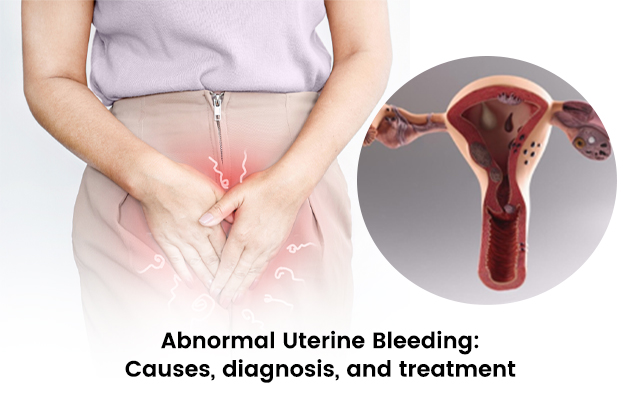Abnormal uterine bleeding refers to any atypical or irregular bleeding that occurs outside the normal menstrual cycle. Here, the top gynecologist in Rajarhat, Newtown has discussed the causes, diagnosis, and available treatment options for abnormal uterine bleeding.
Causes
There are numerous factors that can contribute to abnormal uterine bleeding. Some common causes include hormonal imbalances, uterine fibroids, polyps, endometriosis, adenomyosis, pelvic inflammatory disease (PID), thyroid disorders, and certain medications. Additionally, medical conditions such as polycystic ovary syndrome (PCOS) and blood clotting disorders can also lead to abnormal bleeding.
Diagnosis
To find out the cause of abnormal uterine bleeding, a thorough evaluation is necessary. A gynecologist in Kolkata will typically begin with a comprehensive medical history review and a physical examination. They may also recommend additional diagnostic tests, including:
1. Hormonal evaluation: Blood tests may be conducted to assess hormone levels and identify any imbalances.
2. Imaging studies: Ultrasound scans can help detect abnormalities such as fibroids, polyps, or structural issues in the uterus.
3. Endometrial biopsy: A small sample of one’s uterine lining may be taken and examined to rule out any signs of cancer or other abnormal cells.
Treatment Options
The treatment for abnormal uterine bleeding depends on the underlying cause, severity of symptoms, and the patient’s reproductive plans. Some common treatment options include:
1. Hormonal therapy: Birth control pills, intrauterine hormonal devices (IUDs), or other hormonal medications may be prescribed by an obstetrician and gynecologist to regulate menstrual cycles and reduce excessive bleeding.
2. Nonsteroidal anti-inflammatory drugs (NSAIDs): These medications can help alleviate pain and reduce heavy bleeding.
3. Endometrial ablation: The procedure involves removing or destroying the uterine lining to control or stop abnormal bleeding.
4. Management of underlying conditions: If the abnormal uterine bleeding is a result of an underlying medical condition such as PCOS or thyroid disorders, treating the root cause can help resolve the bleeding issue.
Lifestyle changes can also play a role in managing abnormal uterine bleeding. These may include stress reduction techniques, regular exercise, consuming a balanced diet, and maintaining healthy weight.
Consulting with a gynecologist in Rajarhat, Newtown is crucial for accurate diagnosis and appropriate management of abnormal uterine bleeding. By identifying the underlying causes and implementing targeted treatment strategies, women can find relief from their symptoms and regain control over their menstrual health.




